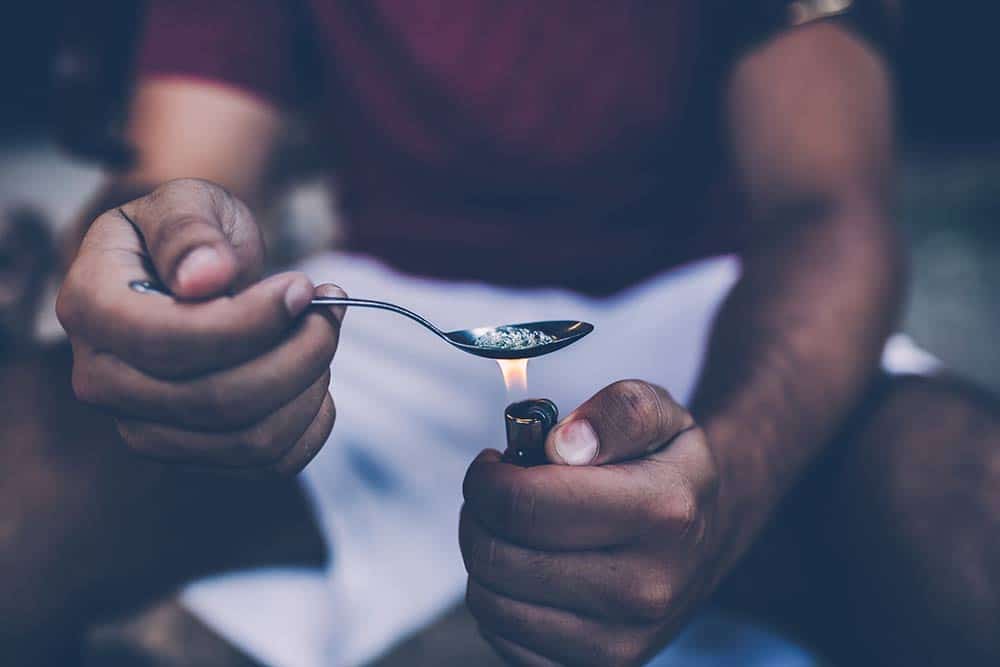Heroin
Incredibly addictive, cheap, and very dangerous
How It Works
Despite a litany of harmful side effects, the appeal of heroin lies in the surge of euphoria that’s felt as it binds to opioid receptors in the brain. A feeling of sleepiness and pain relief kicks in as breathing, not to mention heart rate, is slowed. With continued use, the activity in the body’s limbic system is altered. Pain messages transmitted through the spinal cord from the body are also blocked, which reinforces the need for the drug — and more of it — once a tolerance has been built up. Many people also mix heroin with a variety of other drugs, a cocktail that’s even more dangerous for body function.

Effects of Heroin
- Weakens heart valves
- Affects breathing and heart rate
- Blocks pain messages transmitted through the spinal cord
- Dry mouth
- Heavy feeling in the extremities
- Severe itching
- Nausea/vomiting
- Increased risk of infection from sharing needles
- Frequent drowsiness
- Mood swings
- Weight loss
- Incoherent speech
- Track marks on arms
- Financial challenges
- Painful withdrawal symptoms
Admissions
Our experienced, compassionate Admissions team is here to help 24 hours a day and will treat you with the dignity and respect you deserve. Let our specialists help you create a road map to get you where you want to go: a healthier, more balanced, fulfilling place in life. When you call, you’ll be led through a series of questions to determine if the Claudia Black Young Adult Center is the right fit for your needs, and how soon your treatment can begin.
If you are interested in treatment for yourself or a loved one, call or fill out our convenient Admissions form!
CONTACT OUR ADMISSIONS OFFICE
 866-957-4961
866-957-4961
OR COMPLETE AN ADMISSIONS CONTACT FORM
Click below to start the admissions process today
